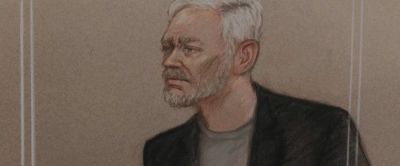UN Concerned over British Government’s Failure to Investigate Whether Assange Has Been Subjected to Psychological Torture

United Nations special rapporteur on torture Nils Melzer has written to governments to press them to investigate properly evidence that WikiLeaks founder Julian Assange has been subjected to psychological torture.
On December 31 Mr Melzer shared on Twitter a letter that he had sent to the British government shaming its failure to address concerns that Mr Assange had been tortured.
(1/6) Just out: My letter to the #UK Govt of 29 Oct 2019, detailing serious due process violations, expressing alarm at #Assange’s detention conditions & health, reiterating my queries & calling for his prompt release. Direct link: https://t.co/mqDEFuYowZ (60 days & no response) pic.twitter.com/bCG2nzmRAn
— Nils Melzer (@NilsMelzer) December 31, 2019
The letter, dated October 29, did not receive a response. He has also written to the United States, Swedish and Ecuadorian governments.
The US is seeking Mr Assange’s extradition to face spying charges. The whistleblower has been detained since his arrest in April at the Ecuadorean embassy in London. He had been confined there since 2012 after being granted asylum by the South American country.
At the time Mr Assange was a wanted man in Sweden, having failed to respond to demands for him to return there to face questioning over sexual assault charges. He claimed that Sweden would simply ship him out to a vengeful US, angered by his whistleblowing activities. The assault charges were eventually dropped.
In his tweet Mr Melzer accused the British government of “seriously undermining the credibility of the UK’s commitment to the prohibition of torture and ill-treatment, as well as to the rule of law more generally.”
He said that “recurring and serious” due-process violations in Britain have rendered Mr Assange’s case “inherently arbitrary, to the point of making any legal remedies a pointless formality devoid of prospect.”
Mr Melzer called on the government to retract its extradition authorisation and release him from prison “without further delay.”
Anti-war campaigner John Rees told the Star yesterday:
“Obviously it is a very important intervention from a very high-authority source, but it is not news to anyone who has visited Assange in Belmarsh high-security prison, as I have.
“The conditions he is being kept in are unacceptable and there is absolutely no doubt that the prison regime is directly causing deterioration of his health.”
Mr Rees said it was Home Secretary Priti Patel’s responsibility to intervene.
“The judge has already expressed concern that [Mr Assange’s] legal team are not getting access to their client,” he said. “Both these things are of the most serious nature, it jeopardises any fair hearings coming up in February.”
Former Derby North MP Chris Williamson tweeted:
“The UK government’s treatment of Julian Assange continues to shame Britain.”
Mr Melzer’s call comes as journalist Vaughan Smith told RT that an “obviously sedated” Mr Assange said he was “slowly dying here” during a Christmas Eve phone call between the two friends.
Mr Smith said Mr Assange sounded like a shell of the man he once.
“His speech was slurred. He was speaking slowly,” Mr Smith said. “Now, Julian is highly articulate, a very clear person when he speaks. And he sounded awful. It was very upsetting to hear him.”
*
Note to readers: please click the share buttons above or below. Forward this article to your email lists. Crosspost on your blog site, internet forums. etc.
Featured image: Julian Assange court sketch, October 21, 2019, supplied by Julia Quenzler.

